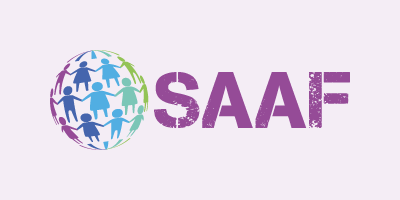I joined Di Ramona when I was still at university. I started as a volunteer and then did my professional internship there. During my internship, I was offered the chance to take on communications more formally, to give that area more structure. I volunteered in this role for around two and a half years until eventually I was offered a salary and began working more seriously as the official lead for communications.
I had actually experienced an abortion earlier in the year that I started at Di Ramona.
I had gone through my own abortion without any support and was quite surprised once I joined Di Ramona and discovered that support structures existed close by, but I had known absolutely nothing about them.
Abortion, for me, marked a before and after in my life.
The fact that I experienced abortion in a very different way from how we accompany people at Di Ramona created an important turning point for me.
I arrived with a lot of stigma and fear, coming from a deeply Catholic background in a small rural town. When I entered this space, where abortion was openly and constantly discussed, I had to do a lot of unlearning and reflect on where those stigmas came from.
Recognising myself as someone who now works on abortion has been both fascinating and beautiful, because I get to listen to the stories of others whom we accompany. Sometimes it is overwhelming to realise that we are truly helping to change lives, to improve lives, and to support people to continue their plans and dreams.
Nowadays, with the process of decriminalisation underway in Mexico, my work also involves guiding people to public services. That is particularly significant, because my own abortion took place before decriminalisation. It is truly striking to know that in my own state people now have so many options, far more than I did. It makes a huge difference that we at Di Ramona can help share this information and highlight the range of services available.
Through my communications work I aim to normalise the conversation about abortion.
This has been a long journey, involving lots of training and engagement with other collectives and organisations that also work on abortion and sexual rights.
When I had my abortion, most of the public narratives came from older women, which felt disconnected from my own reality. Being able to shift the narrative and to speak with love, empathy and tenderness has been essential. But this only works if you truly believe in it yourself, because otherwise it will not come across in your work.
Di Ramona has been able to refresh the abortion narrative in powerful ways, which keeps us close to younger communities. When we talk to young people, they recognise that we speak their language. Even if we are slightly older, we still connect with them in ways that previous generations did not.

Abortion is a natural process, and framing it that way helps to remove positive or negative labels.
I think it’s really important to call things by their name. Losing the fear to say “abortion” is vital, though of course it depends on the context. In Hidalgo, we have even been able to talk openly about abortion on TV and in other media. But you cannot get to that point unless you name abortion directly, as a reproductive act in the life of someone with the capacity to become pregnant.
We need to believe in what we are doing in order to communicate it clearly. It is also essential to stay fresh and receptive to change. Too often organisations and collectives hold onto one rigid discourse and a very serious tone. That does not work when your audience is young. We cannot reach young people if we only speak in the language of “human rights”. If they don’t connect with what we post on social media, they won’t reach out to us.
We know that every person’s experience of abortion is different.
We don’t want to impose a label before they even approach us.
At Di Ramona, we rarely focus directly on the abortion process itself, but rather on the accompaniment we provide. Highlighting accompaniment in our communications builds trust, reassuring people that it is not wrong to say “abortion”, it is not wrong to have an abortion, it is not wrong to name things as they are.
Speaking positively does not mean being frivolous. Using flowers in communications, for example, does not mean that everything is always perfect. Similarly, when we say “you are not alone”, we must remember that some people do, in fact, experience this alone. At the same time, we avoid imposing narratives such as “abortion is liberating” or “the best decision of my life”.
Each person will live it in their own way, and our role is to respect and support that.
Interview with Roxana Mancilla, Communications Coordinator at Di Ramona, a SAAF grantee partner in Mexico.




